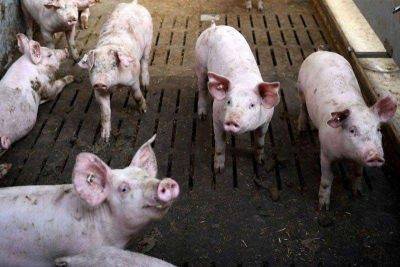Nobel prize for medicine goes to COVID-19 vaccine researchers
STOCKHOLM – Katalin Kariko and Drew Weissman won the Nobel Medicine Prize on Monday for work on messenger RNA (mRNA) technology that paved the way for the groundbreaking COVID-19 vaccines.
The pair, who had been tipped as favorites, “contributed to the unprecedented rate of vaccine development during one of the greatest threats to human health in modern times,” the jury said.
The World Health Organization declared COVID a pandemic in March 2020 and the mRNA vaccines were approved for use in December that year.
Billions of doses have been injected around the world since then.
Together with other Covid vaccines, they “have saved millions of lives and prevented severe disease in many more,” the jury said.
Kariko, 68, and Weissman, 64, longstanding colleagues at the University of Pennsylvania in the United States, have won a slew of awards for their research.
They include the prestigious Lasker Award in 2021, often seen as a precursor to the Nobel.
In honoring the duo this year, the Nobel committee in Stockholm broke with its usual practice of honoring decades-old research, after ensuring it has stood the test of time.
While the prizewinning research dates back to 2005, the first vaccines to use the mRNA technology were those made by Pfizer/BioNTech and Moderna against Covid-19.
Unlike traditional vaccines which use weakened virus or a key piece of the virus’ protein, mRNA vaccines provide the genetic molecules that tell cells what proteins to make, which simulates an infection and trains the immune system for when it encounters the real virus.
The idea was first demonstrated in 1990 but it wasn’t until the mid-2000s that Weissman, of the US, and Hungarian-born Kariko developed a technique to control a dangerous inflammatory response seen in animals exposed to these molecules, opening the way to develop safe human vaccines.
The honor is particularly sweet for Kariko, the 13th woman to win the Medicine Prize, who toiled in obscurity for years and struggled to convince her superiors of the need for research on “messenger ribonucleic acid.”
Speaking to Swedish Radio (SR), she said her late mother always had faith in her, listening to the Nobel prize announcements “year







